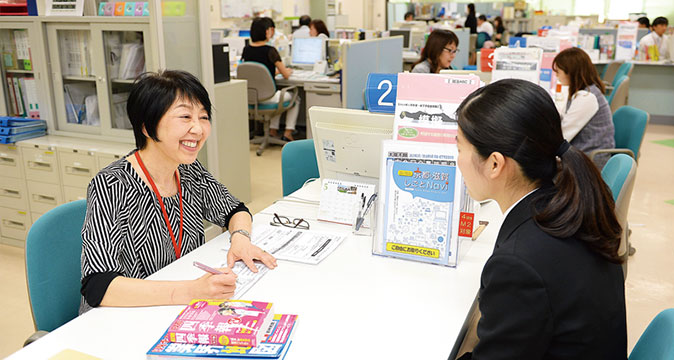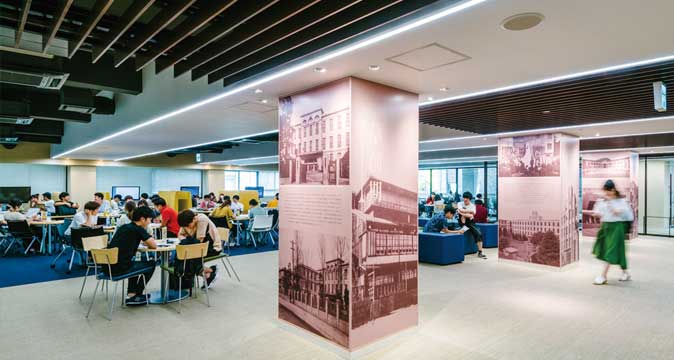2) Creating desirable career pathways that respond to society’s needs
We have been making improvements to careers and graduate employment services and providing attentive support to enable students to realize their preferred career paths, based on analysis of changes in the employment and recruitment climate and student activity trends. As a result, in the area of graduate employment in the private sector, we have attained the targets set by the university as basic performance indicators for the second half of R2020, including satisfaction with post-graduation career paths, degree of ascertainment of student career paths, proportion of students deciding career path, and proportion of students obtaining graduate employment. We have also been working in close collaboration with colleges, graduate schools, and associated divisions to strengthen support for students taking highly competitive external examinations, resulting in a rise in pass rates. This is beginning to generate a positive cycle whereby more students are aiming to pass competitive examinations.
In survey of graduating and completing students conducted in AY 2018, 95% of students gave positive ratings for “satisfaction with student life” and “satisfaction with education. When asked to nominate “something that contributed to your growth,” respondents named such things as their graduation thesis / Master’s thesis, curricular activities such as seminar classes, extracurricular activities, and graduate job-hunting activities. These results clearly show the positive correlation between graduate careers and employment outcomes and sense of fulfilment and satisfaction with student life.
Moreover, rather than targeting only students preparing for graduate employment and careers in the immediate future, we have also strengthened the provision of individualized support tailored to the conditions of graduate students, international students, lower-year undergraduate students, students with disabilities, and the like, as well as the career preferences of students seeking careers in fields such as public service and education, law and accounting, and in rural and regional areas. Furthermore, in AY 2014 we launched a “Global x Career” approach to graduate career support in a global framework. Specifically, we have held careers abroad seminars, provided information on career opportunities at international organizations and in the international cooperation field, and implemented other support programs for Japanese, international, and English-medium students interested in working in countries other than Japan or their home country.
Contents
- Chapter IProgress of Plenary Council Discussions to Date and Positioning of the AY 2022 Plenary Council
-
Chapter II.Ritsumeikan University’s Initiatives from R2020 toward R2030
- 1. R2020 Initiatives
- (1) Initiatives to Realize Diverse Learning among Diverse Students (development of student learning environments)
- 1) Enhancement of learning/teaching environments in the undergraduate colleges: the core of university learning
- 2) Creating desirable career pathways that respond to society’s needs
- (2) Advanced Research and Career Support Initiatives in Graduate Schools
- (3) Development of Campus Environments for Greater Amenity and Enrichment of Learning and Student Life
- 2. Emergency Responses to the COVID-19 Pandemic and Future Outlook Based on the Pandemic Experience
- 3. Concrete Initiatives under R2030 Challenge Design
- (1) Approach to the R2030 Challenge Design
- (2) The Meaning of Expansive Recoupling of Research and Education: Seeking to Discharge Ritsumeikan University’s Mission
- (3) Further Enrichment of Student Learning and Growth
- (4) Roles Expected of Graduate Students (the “ideal graduate student” envisaged by Ritsumeikan University)
- (5) Future Advancement of Graduate School Academic Programs
- Chapter III Financial Management in the R2020 Period and Ritsumeikan University Tuition/Finance Policies for AY 2023 and Beyond
- Document



